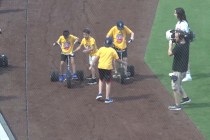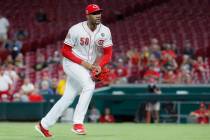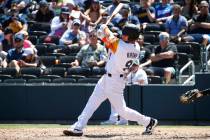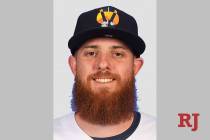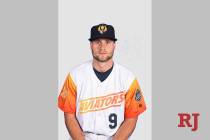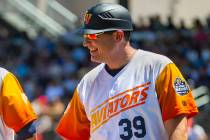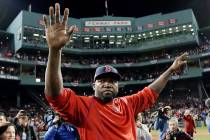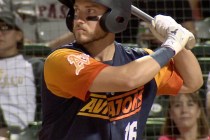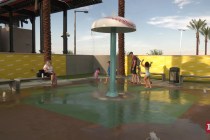Las Vegas 51s had long road from Cashman Field to new stadium
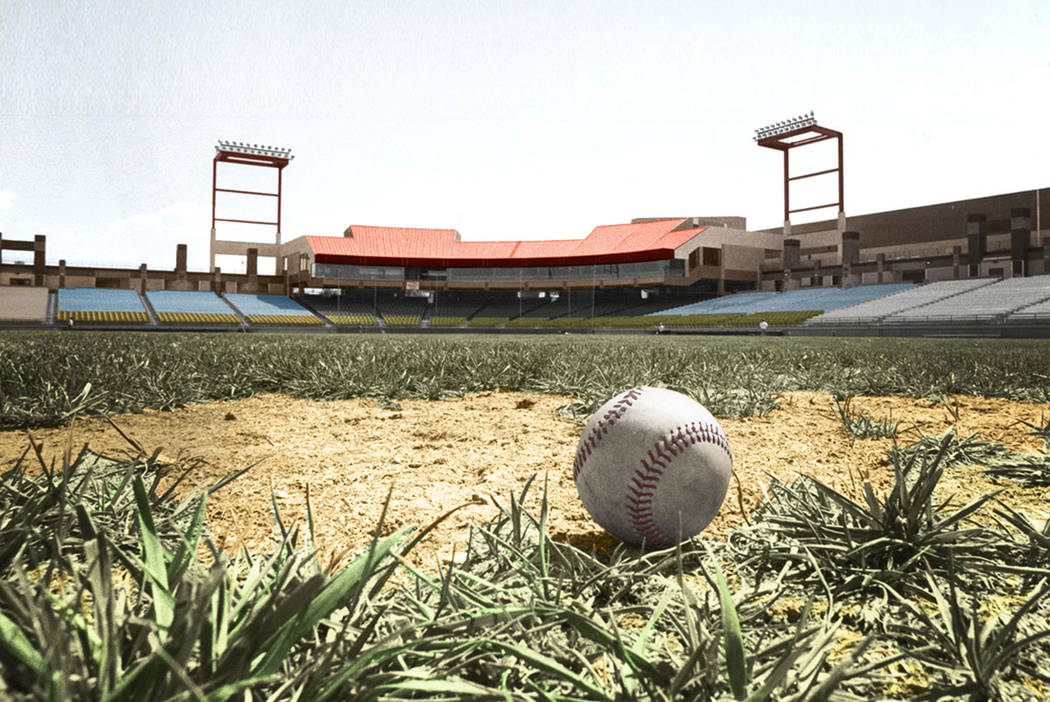
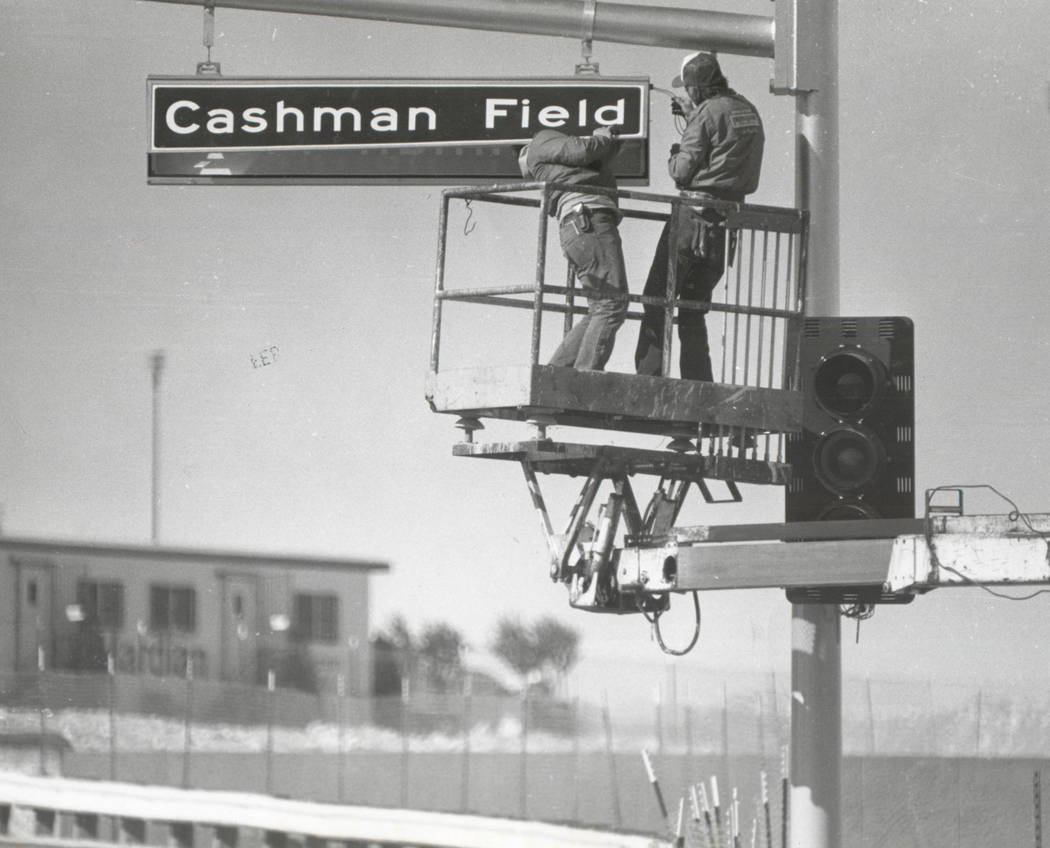
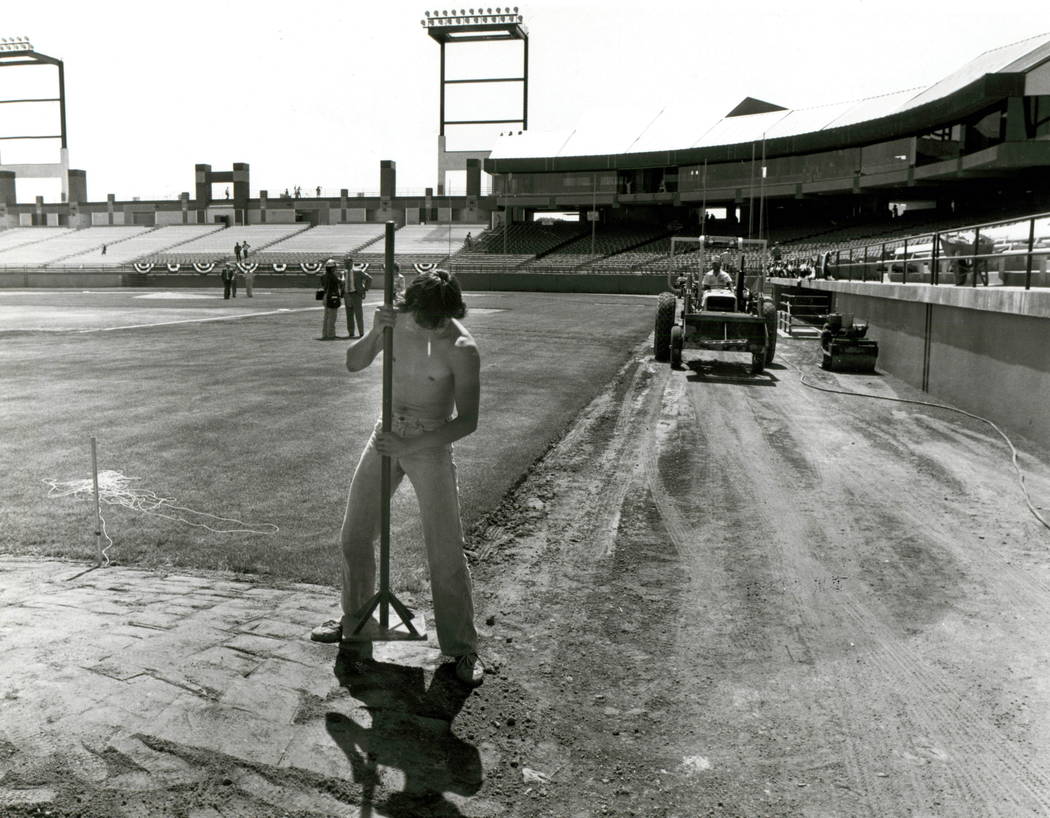

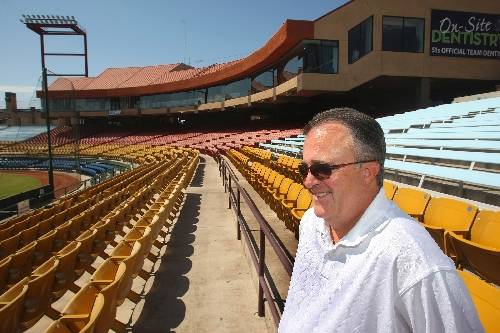
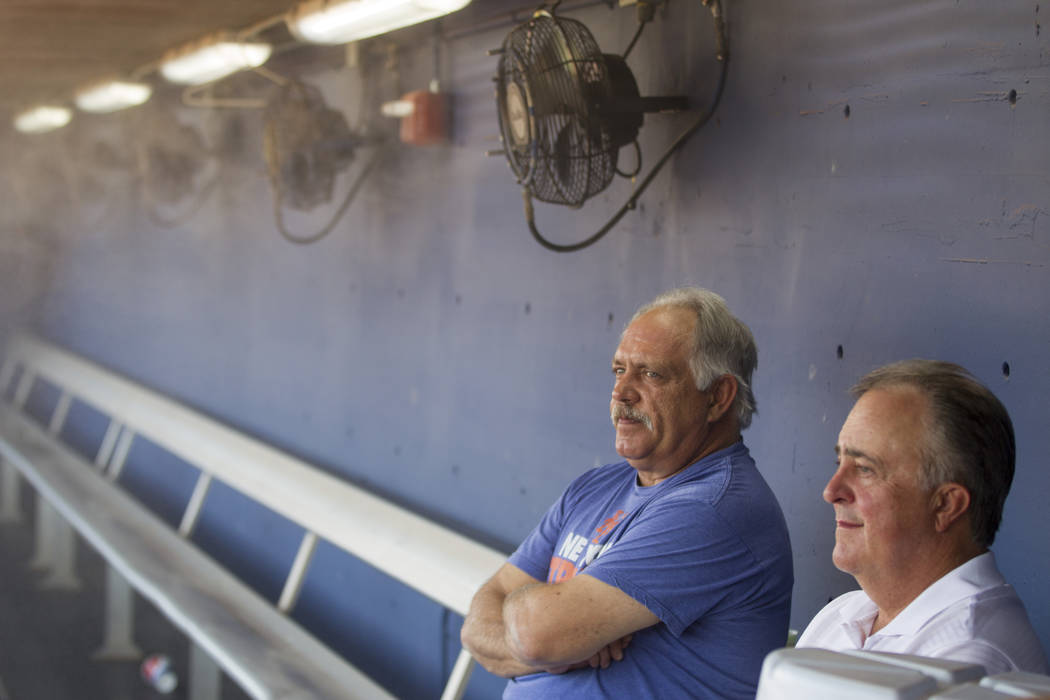
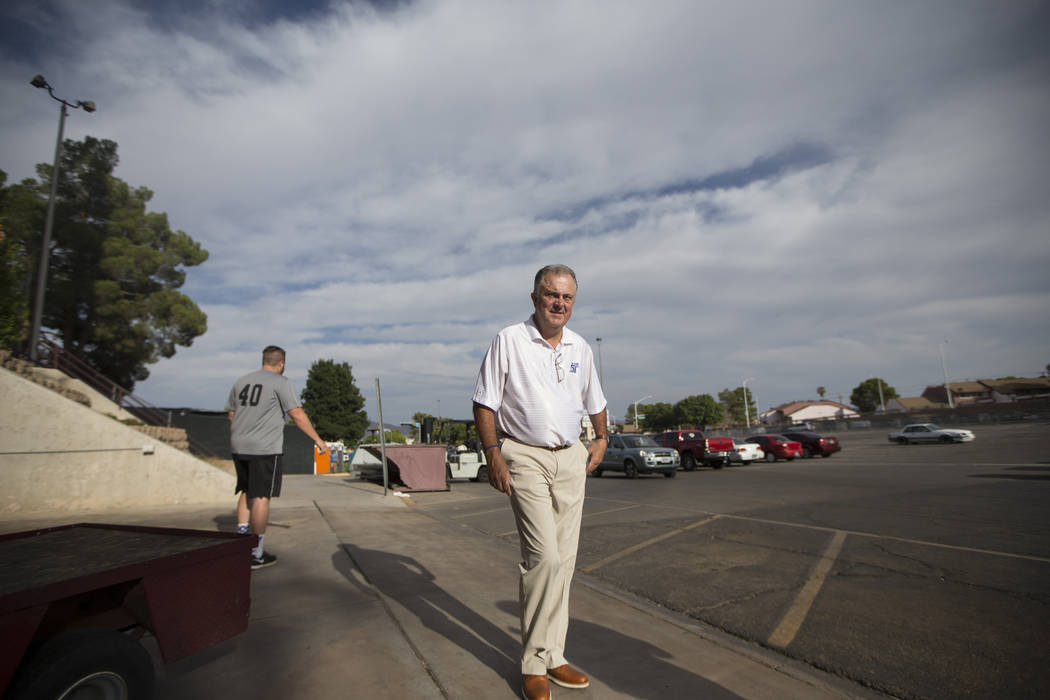

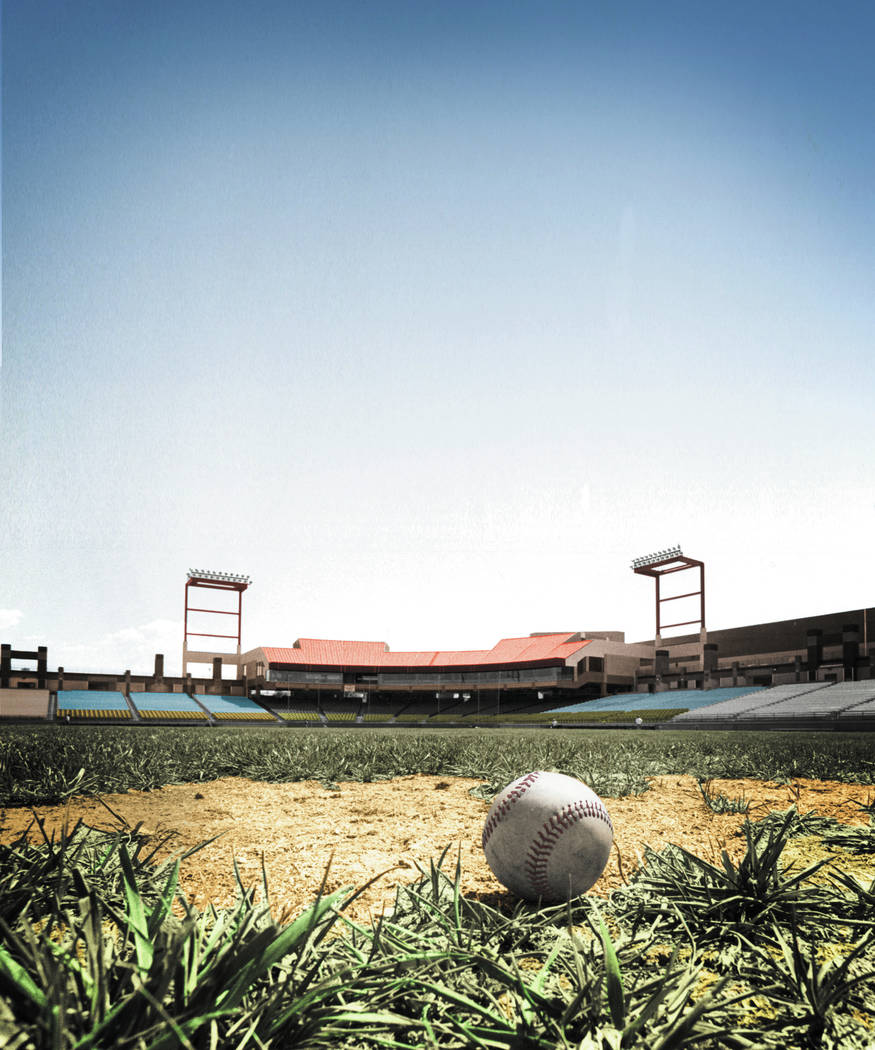
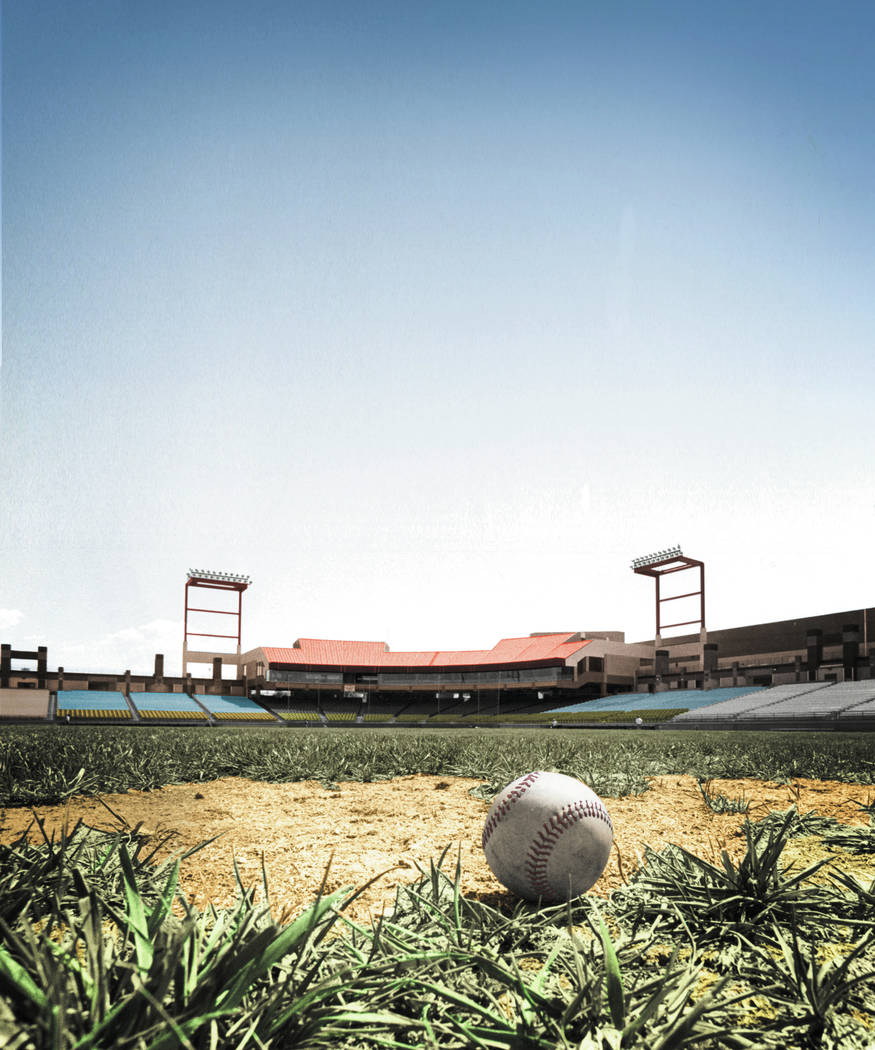

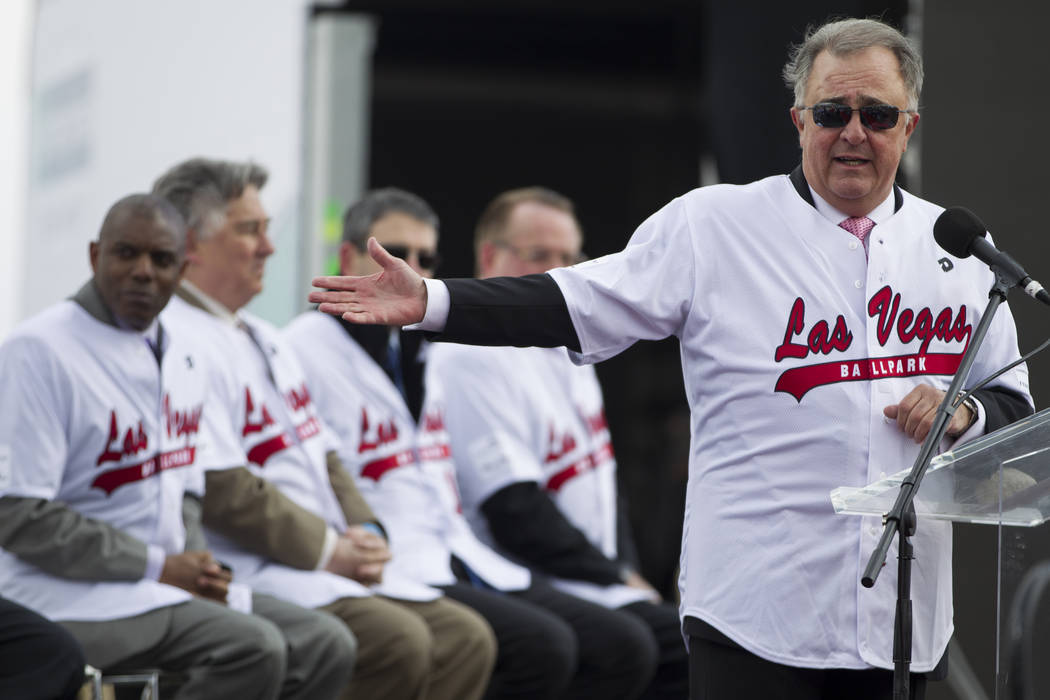
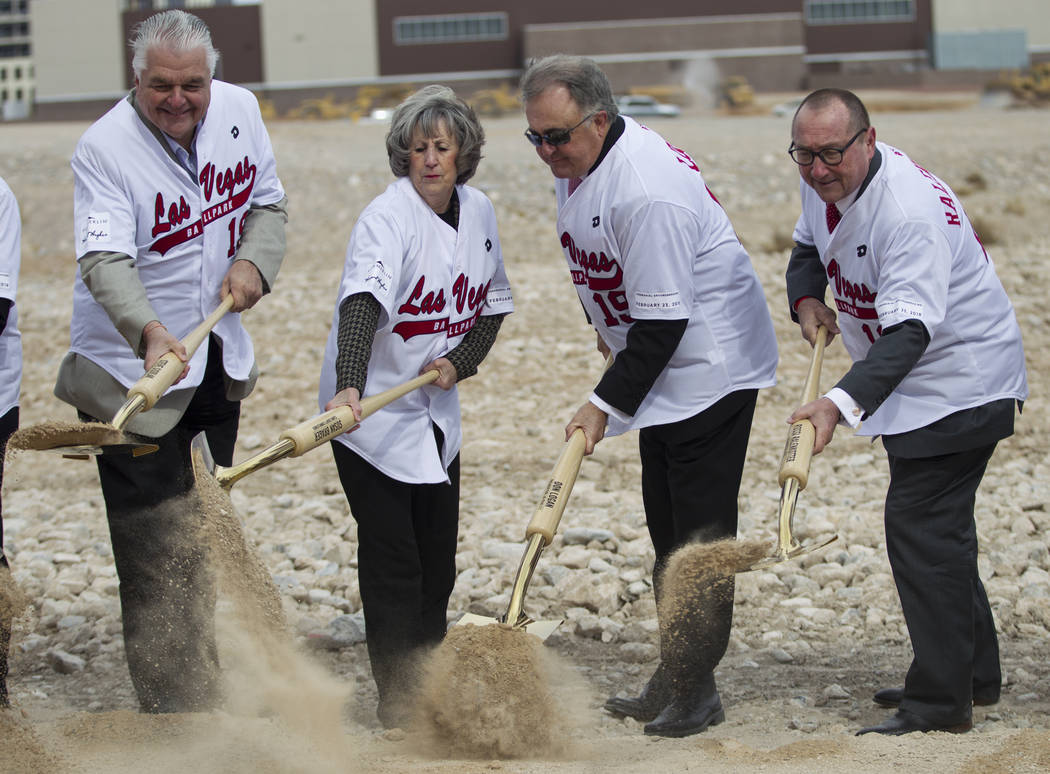
The year was 1995. Cashman Field was just 12 years old at the time, but Las Vegas Stars President Don Logan wanted a new baseball stadium built in Southern Nevada.
He was thinking big-league. Spring training attendance in Florida’s Grapefruit League had been in sharp decline. The Phoenix area had just been awarded an MLB expansion franchise, so it occurred to Logan, after a conversation with a friend, that the same problem might strike Arizona’s Cactus League. Logan envisioned bringing spring training to Las Vegas, an endeavor that would require all-new facilities.
The plan never gained traction. But Logan never really stopped pursuing a better stadium for the Triple-A ballclub.
“It’s been a … mission that I made up my mind that had to happen,” Logan said.
Now, after 23 years, multiple ownership changes and a rebranding of the franchise, the team finally is getting the new ballpark Logan has long pitched.
The 51s officially broke ground Friday on Las Vegas Ballpark, a $150 million project adjacent to Downtown Summerlin and right next door to City National Arena, the Golden Knights’ practice facility. In a little more than a year, the 51s will have their new stadium.
Heavy clouds and chilly weather did nothing to dampen the enthusiasm Friday as officials with golden shovels with baseball bat handles turned dirt following a half-hour ceremony in Summerlin.
The process
On the bookshelves in his office at Cashman Field, Logan still has thick books about potential spring training sites in the valley.
Many sites were considered for a complex, including where Bali Hai Golf Club and Desert Pines Golf Club were developed. The Stars eventually settled on a plot in Henderson. The city of Henderson asked the Las Vegas Convention and Visitors Authority for $50 million.
“(Bob) Groesbeck’s the mayor of Henderson. He thought he had the political might to get it done, and he didn’t,” Logan said. “He couldn’t deliver the Henderson side of the deal.”
The process took about four years, from 1995-99, and the Stars weren’t any closer to leaving Cashman Field than when they started.
“One of the things that spring training (plan) did was it told us that this was not the part of town to have a stadium,” Logan said about Cashman’s location downtown. “The best stadiums, whether they’re downtown or suburbia, the term is called ‘Live, work, play.’”
In 1999, Oscar Goodman became Las Vegas mayor. Logan said Goodman initially wanted a new Triple-A stadium on the 61 acres now called Symphony Park, but the mayor quickly changed his focus to luring major-league sports to the city.
Goodman said his vision for a new downtown never included a new minor-league baseball stadium.
“(I was) happy and content with Cashman Field being the home of the Minor League Baseball team, and that was always my position,” Goodman said Friday. “I felt that if we were going to build a new stadium, it should be for a major league team.”
Another attempt to get a stadium financed started in 2003. The Stars had been renamed the 51s, and groups from both Las Vegas and Reno were trying to get funding for new baseball stadiums. Reno did not yet have a team.
Over lunch at Adele’s in Carson City, Logan, a representative from the Reno contingent and Pacific Coast League President Branch Rickey, along with a few state senators, chatted about how to fund both parks.
A rental car tax increase was going to be used to help fund the stadiums. Logan said a commitment was in place.
Money from that tax eventually helped fund a Reno ballpark — where the Reno Aces, the Triple-A affiliate of the Arizona Diamondbacks, have played since 2009. But in Las Vegas, the tax was never applied to a baseball stadium. Instead, it subsidized construction of The Smith Center for the Performing Arts, which opened in 2012.
“As the stadium was going forward in Reno, that same allocation of money was available for Southern Nevada, but there were forces at work in Southern Nevada that preferred it to go to a different project altogether,” Rickey said.
Myron Martin, the president and CEO of The Smith Center, said he didn’t recall conversations about baseball stadiums at the Legislature.
“I don’t think at the time that the baseball stadium in Reno was being contemplated, and The Smith Center was being contemplated. I don’t remember any conversations in Carson City about a baseball stadium in Las Vegas,” Martin said.
With no stadium deal in place, Mandalay Baseball Properties, the owner of the 51s led by current Los Angeles Dodgers and Golden State Warriors co-owner Peter Guber, decided to sell the team. Three years later, in 2008, Stevens Baseball Group, made up of Derek Stevens and his family, became the new owner.
Logan said they went back and forth with the city on how to finance the stadium. At one point Henderson came back into the mix.
“(The Stevens family) wanted to do it downtown, and then The Smith Center came into being, so now all of a sudden the land in downtown Vegas that we thought, ‘If you’re going to do it downtown, that was probably the only place to do it,’ that’s gone,” Logan said.
With nowhere downtown to go, the team was sold again. Developer Chris Milam was looking to buy the team to move it to Henderson, but he failed to close the deal. Milam proposed a sports complex near the M Resort in Henderson but was later sued by the city on allegations of fraud and was barred from doing business there.
In 2013, the Summerlin Las Vegas Baseball Club LLC — a joint venture between The Howard Hughes Corp. and the Play Ball Owners Group — bought the team.
“The idea of purchasing the team was just a precursor to eventually moving the team to a Summerlin location, and it was always felt that a state-of-the-art Triple-A facility in Summerlin and, in fact, in the middle of Downtown Summerlin, would be an iconic sports venue, very well-suited to this new urbanist environment,” said Tom Warden, Howard Hughes Corp. senior vice president of community and government relations.
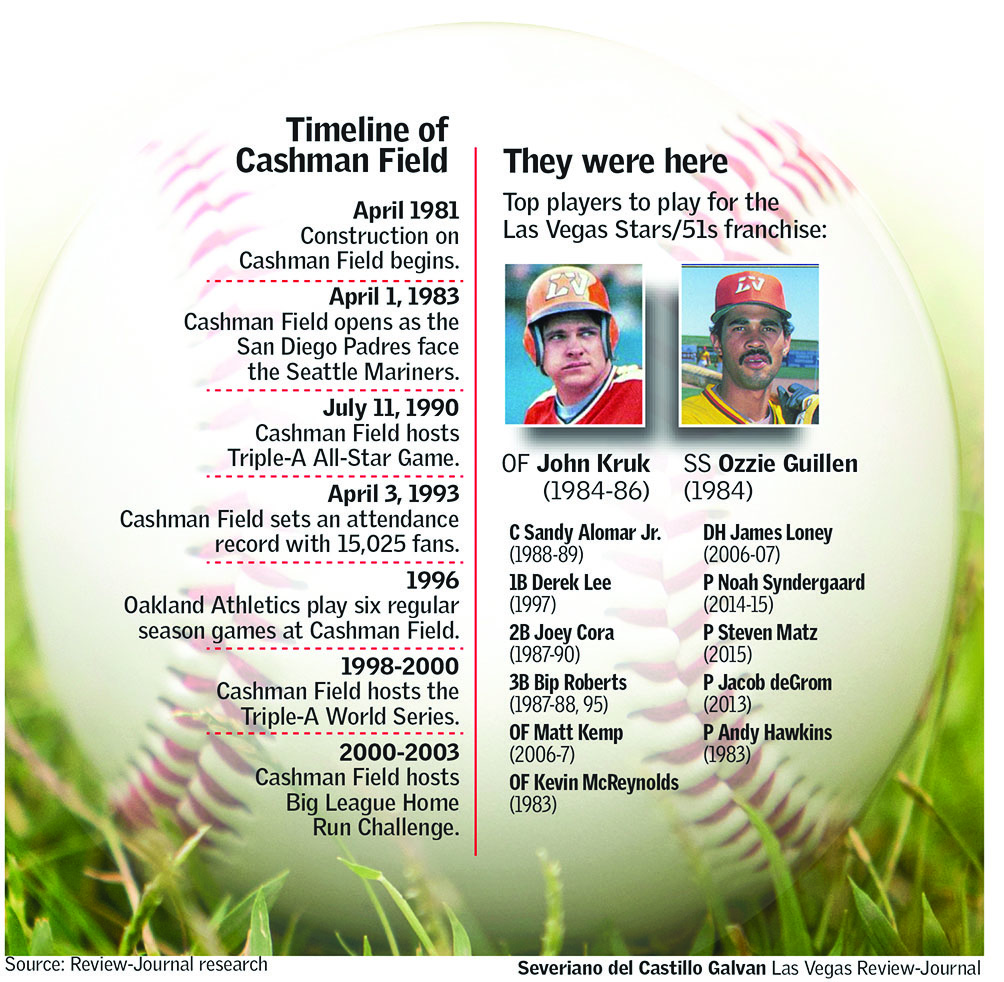
RIGHT-CLICK TO ENLARGE
New ownership
But new ownership didn’t mean new stadium.
At least not initially.
The Howard Hughes Corp. already owned the land where they intended to put a stadium, but the financing took time.
“They’re developers. They do real estate. They develop office buildings, they develop the Downtown Summerlin mall. They do the houses and all that stuff. That’s what they do. That’s their core business,” Logan said. “This isn’t really that. There was no malice. There was no lack of interest. There was just a prioritization. They had other priorities that needed their time and attention and their money, so that’s why this took so long.”
And the partnership between The Howard Hughes Corp. and the Play Ball Owners Group, led by investors Steve Mack, Bart Wear and Chris Kaempfer, eventually slowed the project down, too, leading the former to buy out the latter last year.
“Everybody was very enthusiastic supporters of baseball and of Triple-A in Las Vegas and of a new home, but it’s always easier to move a project forward when you have one chef in the kitchen, and so that was the decision and it was a very amenable parting in terms of us becoming the sole owner, but that did help,” Warden said.
A deal at last
The LVCVA, the 51s’ longtime landlord at Cashman Field, was eager to escape the costs of stadium operations. The LVCVA turned Cashman Field over to the city of Las Vegas last year.
The money that finally moved the project forward came from a 20-year, $80 million naming rights and marketing deal with the LVCVA. Hotel room tax revenues that flow to the LVCVA will cover the costs.
The deal was approved at an LVCVA board meeting Oct. 10. Board members voted 8-2 with two abstentions after about 1½ hours of debate. The meeting was the only opportunity for public comment on the contract, which came to light just days before — and less than a week after the Oct. 1 mass shooting in Las Vegas.
The Howard Hughes Corp. sent out a news release announcing plans for Las Vegas Ballpark immediately after the vote.
Before a hotel room tax increase was approved to partially fund a nearly $1.9 billion domed stadium in Las Vegas for the NFL’s Oakland Raiders, the public had many chances to comment on the plan, first before the Southern Nevada Tourism Infrastructure Committee and then the Nevada Legislature. When asked if there had been enough opportunity for the public to comment on the Las Vegas Ballpark plan, LVCVA CEO and President Rossi Ralenkotter stressed that the deal wasn’t a stadium financing plan, but a marketing contract.
“The actual building … is the responsibility of The Howard Hughes Corp., and so that’s their cost. They have to not only fund that but they also have to operate it and remodel it when it comes to that point and make sure that it’s operational. … So our deal was not a deal fund the stadium,” Ralenkotter said. “Ours was to have a marketing agreement, naming rights agreement that allowed us to be part of marketing the destination as well as supporting minor league baseball for the valley.”
The LVCVA will have ballpark signage that promotes other destinations — such as Boulder City, Laughlin and Mesquite — at the new park.
“We saw the importance of minor league baseball. It’s been part of our community for years,” Ralenkotter said. “It falls under our fair and recreation board responsibilities, and it does drive visitation from the visiting teams who come here with their players, as well as some of their fans come here, some of their booster clubs come.”
“The city gets this place (Cashman) to do with whatever they want. The county is going to get a brand new facility out in Summerlin that’s going to be the nicest Triple-A ballpark in the country. The LVCVA gets the benefits, still continues to get the benefits that professional baseball brings on an annual basis, and they get out from the obligation of this place and we get a new stadium to make this the type of franchise it should be,” Logan said. “It’s a win, win, win, win.”
‘A really good situation’
Season ticket holder Dr. Stephen Vargo said he considered not renewing his seats but decided to upon hearing about plans for a new stadium. Vargo said he thinks the new stadium is going to energize the fans and get them excited about having baseball in a new stadium.
“I’m hoping it’ll have the same impact on other folks as it’s had on me,” Vargo said.
Attendance at Cashman Field, despite its old age, has been up in recent years, and Las Vegas has remained an attractive market for Minor League Baseball — one it didn’t want to lose.
Las Vegas provides a valuable travel hub for the Pacific Coast League, is a destination for fans and it’s an iconic city, Minor League Baseball President Pat O’Conner said. They were “really just butting our heads up against a wall trying to figure out how we could stay,” even as seven other Pacific Coast League teams moved around.
“There have probably been many junctures in this project where throwing your hands up and walking away would have been less frustrating, but they stuck to it, and I think they’re going to end up with a really good situation,” O’Conner said.
Throughout ownership changes and the stalls in the project, there always was an underlying sense that a new stadium would get built.
“It’s been an odyssey,” Logan said. “It’s all been predicated on understanding that you’ve got to have the right type of facility to make Triple-A baseball work, and the place in Summerlin is going to be fantastic. It’s going to do it.”
Contact Betsy Helfand at bhelfand@reviewjournal.com. Follow @BetsyHelfand on Twitter.
They were here?
Top players, by position, in Las Vegas Stars/51s franchise history:
— C Sandy Alomar Jr. (1988-89)
— 1B Derek Lee (1997)
— 2B Joey Cora (1987-90)
— SS Ozzie Guillen (1984)
— 3B Bip Roberts (1987-88, 95)
— OF Matt Kemp (2006-07)
— OF John Kruk (1984-86)
— OF Kevin McReynolds (1983)
— DH James Loney (2006-07)
— P Noah Syndergaard (2014-15)
— P Steven Matz (2015)
— P Jacob deGrom (2013)
— P Andy Hawkins (1983)




